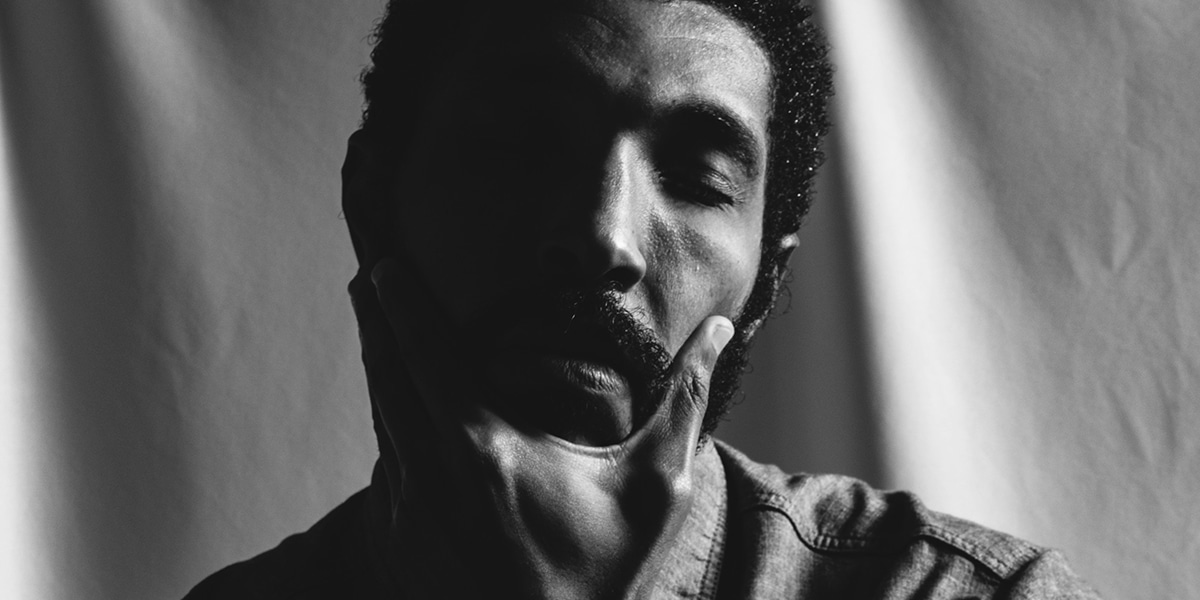Cathy Raney was all smiles: The pregnancy test read positive. Her husband hugged her gently, as if she’d suddenly become a porcelain doll. Their children were more active in their joy, jumping up and down at the thought of having another baby brother or sister.
As the days forged ahead, preparations were made for the arrival of a new family member. New room assignments were discussed; interesting names were suggested. Even the toddler talked glowingly of “baby in Mommy’s tummy.” Cathy could already sense her body making adjustments for the fetus growing within.
Just five weeks later, their hopes and dreams for this child were dead: Cathy had miscarried.
Following the pronouncement, she was scheduled for a dilation and curettage (D&C) at the local hospital, a procedure she had experienced in the past. Cathy would be encouraged to conceive again as soon as she was emotionally ready. This pregnancy would be treated as if it had never happened. (Everyone identified in this article gave permission for their names to be used.)
But Cathy knew better. She had been pregnant; now she was not. She had been a mother of another small soul; now she returned home with empty arms and unfulfilled hope.
Sensing the need to recognize and dignify the short life of their child, Cathy and her husband requested the remains of the baby for burial. They discovered that this was an out-of-the-ordinary request.
But, through phone calls from a compassionate obstetrician, the baby they named Teresa received a funeral and a plot. The Raney family found an outlet for their grief, closure for their hearts and the hope that they would someday meet this child in heaven.
Miscarriages are a common occurrence, but such peaceful endings are not. Aziza and Chris Stansberry of Sanford, Florida, had a very different experience.
In the midst of grieving for what would have been their fourth child, Chris battled the hospital and the obstetrician to ensure that the remains of his and Aziza’s child would be respected. He told the doctor, “We are Catholic. We believe that life begins at conception and that our baby had a soul. It’s important to us that the remains be dealt with respectfully, rather than be discarded as medical waste. I need your help.”
The doctor’s incredulous response was, “It’s just a miscarriage.”
Chris’s natural grief for this child intensified as he called upon assistance from the hospital, funeral home and, finally, his pastor in an effort to dignify the short life of this tiny soul.
Affirming the Loss
Unfortunately, the callous treatment the Stansberrys received is all too common. Martha Sullivan, head of pastoral counseling for St. Elizabeth’s Hospital in Boston, has witnessed the resulting pain of such treatment throughout the last 11 years of her ministry. She has also seen firsthand the healing and validation a simple and dignified burial can bring to a bereaved family.
At St. Elizabeth’s, she says, “We value each loss as a baby. We talk to couples about their miscarriage, affirm their right to grieve the loss of that life and just try to express our sorrow for their pain.” The hospital also offers burial of stillborn or miscarried children in a private cemetery on hospital grounds.
Burying the dead is a simple act, a corporal work of mercy. But the resulting healing affects grieving parents, families and even the hospital staff. “It makes a difference,” Sullivan insists, “to appreciate the pain others go through. After all, the grief a parent feels cannot be determined by the weeks of pregnancy. In fact, I’ve had parents tell me that to have an early miscarriage is even worse, for then they are robbed of the opportunity to see and to hold their baby.”
For Sullivan, this outreach is a natural consequence of Catholic belief in the dignity of life. She says, “We are so big about life beginning at conception. It’s only natural that we recognize and dignify that life through burial.”
Parents at the hospital have the option to receive and bury the remains privately. But most opt to have their babies interred in the infants’ area, which is memorialized with a special service twice a year.
Though many families do not return for the memorial service, Sullivan says that most mothers experience real peace just knowing where their child is: “‘I am so glad you told me where my baby is,’ they say. ‘I was afraid to ask.’
“It’s good for the family…and it’s good for the staff,” she adds. “We all need a place to go and remember life.”
Spiraling Depression
Invalidated grief, on the other hand, can have disastrous results. Jean and Mike Morrisey of Boston, Massachusetts, learned this firsthand. When they lost their child 15 weeks into the pregnancy, the hospital—like so many others—wouldn’t even discuss Jean’s emotional state, much less the disposition of the baby’s remains.
Jean had a D&C, then “was sent home like nothing happened,” she recalls. “After a couple days, I was still feeling very sad and depressed, but I was told I’d get over it. I sank into a very deep depression. I called again for help. I was told it wasn’t a problem: ‘You’ll be fine in a few days.’”
Massachusetts state law provides that bereaved parents receive some kind of counseling, followed by full disclosure regarding the disposition of their baby’s remains.
It was months after Jean’s miscarriage before she finally sought out Martha Sullivan at the neighboring St. Elizabeth’s Hospital. By that time, the grieving mother’s depression had spiraled down to the point that she wondered if she was losing her mind.
Sullivan not only validated the loss the Morriseys experienced, but also edified them: “Your baby had a soul. It deserved dignity and respect.” This might seem like a small assertion, but it was enough to put Jean back on the path of healing.
Traumatized by Loss
Teresa Karminski Burke, a certified psychologist and licensed professional counselor, is the author of Forbidden Grief: The Unspoken Pain of Abortion. She has written extensively on the trauma of pregnancy loss, and her resulting work has brought counseling to thousands of women through the post-abortive ministry of Rachel’s Vineyard.
Although natural miscarriage is far different from the intentional abortion of a child, Burke says it is also the loss of a life that needs to be recognized, grieved and resolved. It’s very natural for a woman to blame herself for a miscarriage: “A woman naturally takes responsibility for it in some way or another.”
Other factors can complicate resolution following a miscarriage. “A couple that has been trying forever to have a child—and then loses it—experiences a unique kind of grief,” Burke explains.
On the other hand, another woman might feel rather ambivalent when she finds out she is pregnant, she says. Perhaps she just needs a natural period of adjustment before she really bonds with that child and is prepared mentally and emotionally to be a mother.

For this type of woman, a miscarriage is excruciating because she feels guilty that she wasn’t ecstatic about the pregnancy in the first place. Maybe all she remembers about that young life is being angry or even resentful. Furthermore, if there is any history of abortion or previous loss, that miscarriage can become a focal point of release for all that other grief. Burke says that such releases are powerful enough to initiate depression, sickness and even sterility.
To complicate matters further, early diagnosis and ultrasound have brought family members in closer contact with the baby. As one counselor put it, “The sooner the baby is acknowledged, the sooner the family falls in love with that little one.”
Burke says, “Resolving such grief can be very complicated.” But that doesn’t mean that resolution is impossible.
Beginning to Heal
For many people, healing begins with those who know grief best: the local funeral home. Many funeral homes will receive the remains of the infant when there is a perinatal loss and even offer to inter the infants in designated sections of a cemetery. Reed-Egan Funeral Home of Newark, Ohio, offers this as part of its Catholic heritage and family-centered care. Funeral director Agnes Reed agrees that people often have difficulty getting over a miscarriage “simply because there was nothing done.”
She adds, “In the Catholic Church, far more attention is paid to miscarriages and stillborns than in other religions. By recognizing that loss, you are already on the path to healing.”
Over the years, her family has helped others acknowledge their loss by encouraging them to name their child, ask for a funeral Mass or just have a graveside service. Many of those little children are buried at St. Joseph’s Cemetery in their Little Angels garden, where a weatherworn angel statue watches over 40 years worth of tiny stones. These are concrete reminders of little ones who carried away a piece of their families’ hearts.
Parental Rights
Not every community is so blessed to have this kind of family-centered care. But there are people who are working to bring bereaved parents recognition and healing closure at a national level.
The national office of SHARE Pregnancy and Infant Loss Support is a nondenominational outreach of St. Joseph’s Medical Center in St. Charles, Missouri, phone: 800-821-6819). SHARE is spearheading a drive to recognize the rights of bereaved parents.
Among these are the rights to request a burial and to know a hospital’s “disposition policy.” In several states, SHARE groups work with area hospitals to provide periodic, dignified removal and burial of what’s referred to as “products of conception.”
SHARE director Cathi Lammert says, “At least they know that the remains were examined, removed with great dignity and given a respectful burial. This alone brings great comfort to the parents we counsel.”
Sometimes, there aren’t any identifiable remains. “But that doesn’t matter,” Lammert insists. “We have families who bury just two inches of what doesn’t look identifiable to anybody. Some people think that’s crazy, but it truly brings peace to them. Parents need a place and a ritual to integrate this baby into their lives.”
A Witness to Life
Many people in our culture doubt the existence of life at conception. Hence, the too-familiar experience of having the pain of miscarriage swept under a rug with a quaint but insensitive “Well, you can have another.” This denial often robs families of their right to grieve the death of a little baby.
Mike and Jean Morrisey needed help to overcome that denial and recognize their deep loss. They went on to work extensively with SHARE to ensure that existing state policies regarding disposition and support are carried out in Massachusetts hospitals.
How the Church Helps Parents
Through the work of SHARE Pregnancy and Infant Loss Support, in addition to the insistence of parents who wouldn’t allow their grief to be pushed aside, a whole-family approach has awakened the sensitivities of many in the hospital and funeral industry.
Still, policies of disposition in the case of a miscarriage vary greatly from state to state. In some places, such as Massachusetts, counseling and release of the remains are a legal standard. In other states, you may have to work with a pastor or local funeral home to have your loss recognized and your child’s remains buried.
But our Catholic faith provides us with several ways of connecting to the loss of life, even if your hospital doesn’t. These Catholic means of closure connect us to that little life in a way that death tried to steal, which makes it easier for us to accept the love of a God to whose mercy we commit that child.
The Church’s teaching in the Catechism of the Catholic Church is full of compassion: “As regards children who have died without Baptism, the Church can only entrust them to the mercy of God, as she does in her funeral rites for them. Indeed, the great mercy of God who desires that all men should be saved, and Jesus’ tenderness toward children which caused him to say: ‘Let the children come to me, do not hinder them,’ allow us to hope that there is a way of salvation for children who have died without Baptism” (#1261). In other words, know and believe that your unbaptized baby does have the hope of heaven.
Following are some things you can do to help the healing process:
Have a funeral. No child is too young to receive the Funeral Rite for Infants. Request a funeral or burial service through your parish and let the healing begin. A little social support can help us and others recognize and reflect on the meaning of the loss of this child.
Name your child. Our isolation from the grief intensifies when we don’t allow ourselves to acknowledge the influence this child had on our lives. Name your child and acknowledge that he or she had a unique identity. By honoring and naming your child, you maintain a spiritual relationship with a family member who is an intercessor before God’s throne, a part of the communion of saints. Call your child by name in your prayers and look forward to reuniting in heaven.
Schedule a Mass. It’s important to have an annual Mass said in memory of your child, especially if you missed that opportunity at the time of the miscarriage. Even better, consider holding a community-wide memorial Mass for miscarried and stillborn infants. Knowing other families who have experienced similar grief can be very comforting.
Request a blessing. The “Blessing of Parents After a Miscarriage,” as written in the Church’s Book of Blessings, can be conferred by a priest or deacon. It is given by the Church specifically to “assist parents in their grief and console them with the blessing of God.”
Cathy Raney used her experience with the local funeral home to establish an infants’ plot where other preborn and stillborn children can be buried with no expense to the family.
Initially, Aziza and Chris Stansberry ran into problems in their efforts to have the remains of their miscarried child dealt with respectfully. But, after their pastor became involved, a local funeral home agreed to receive the remains of the baby they named Zephaniah and even donated a small space for his burial. Zephaniah was joined later by another miscarried child, Isaiah.
On behalf of their living children, Aziza and Chris regularly ask Zephaniah and Isaiah to intercede for them. “We have a place to go and think about our unborn children, and be united with them,” Chris reflects. “More than anything else, it’s an opportunity to witness to life.”








